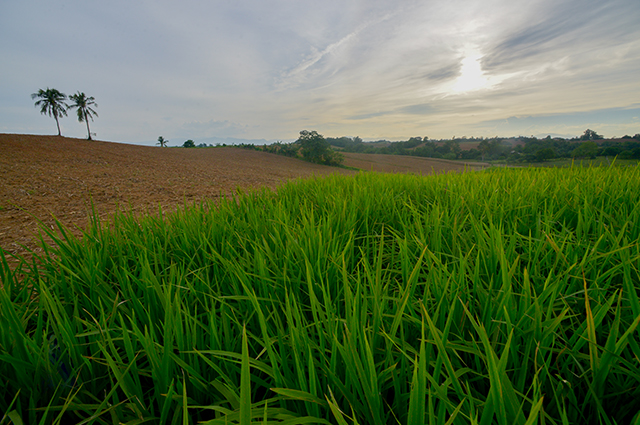 Researchers at the Philippine Rice Research Institute (PhilRice) found that a certain bacteria enhances growth, root development, and grain yield of upland rice varieties.
Researchers at the Philippine Rice Research Institute (PhilRice) found that a certain bacteria enhances growth, root development, and grain yield of upland rice varieties.
The study, Exploring the potential of plant growth promoting actinomycetes to enhance upland rice production, led by Jayvee A. Cruz evaluated the effectiveness of plant growth-promoting bacteria (PGPB) in enhancing the growth and yield of upland rice.
PGPB is recognized in agriculture in reducing the use of chemical fertilizer due to its growth promoting abilities.
Actinomycetes, the study found, are the most economically and biotechnologically valuable bacteria. It also showed the bacteria’s potential to stay in the plant and promote growth by increasing the availability of primary nutrients.
“Actinomycetes can help stimulate root development, and contribute to the increased capacity of the root system for soil nutrients and water uptake to support plant growth. Because of this, we applied the bacteria on upland rice to see its potential in increasing upland rice productivity,” Cruz said.
Amongst 59 tested, Cruz and her team identified S. mutabilis NB3 as the most promising.
“We found that S. mutabilis NB3 with half inorganic fertilizer increased the grain yield from an average of 600 kg/ha to 1,200 kg/ha, proving its potential to reduce fertilizer input by half. It also increased root dry weight and tiller number of upland rice varieties,” Cruz explained.
“Their enhanced growth and ability to survive in Carbonized Rice Hull (CRH) demonstrate the potential of actinomycetes as plant growth-promoting inoculant for upland rice. The CRH could also be an alternate carrier other than soil for commercial use in the future,” Cruz added.
With an average yield of 1 to 1.5 t/ha, upland rice production suffers from factors such as low soil fertility and moisture stress. To increase yield, there should be a high application of inorganic fertilizer according to Cruz.
“Since the study showed its potential to reduce fertilizer input by half, actinomycetes can help farmers minimize their expenditures on fertilizers. It also enhances the condition of the soil, improving its ability to take in water and nutrients,” Cruz concluded.




